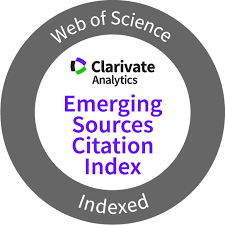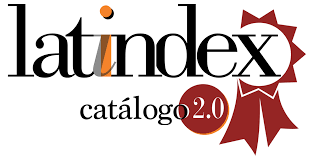How do food bloggers and PR practitioners in the hospitality sector view their relationships? A UK perspective / ¿Cómo ven su relación los bloggers de alimentos y los profesionales de relaciones públicas en el sector de la hostelería? Desde Reino Unido
DOI:
https://doi.org/10.5783/revrrpp.v4i8.296Palabras clave:
Public RelationsResumen
Bloggers are increasingly viewed by public relations practitioners as important influencers within the online media environment, yet research that explores relationships between bloggers and PR practitioners, particularly in the UK, is relatively limited. This paper reports on findings from a small-scale, in depth qualitative study of food blogger-practitioner relationships within the hospitality sector in the UK. The study explored why bloggers write about their restaurant experiences and how they view their relationships with PR professionals; while PR practitioners were questioned about their relationships with bloggers and the influence bloggers are having on PR clients’ reputations. In keeping with previous research, this study found that the practitioner-blogger relationship is complex. The PR practitioners interviewed within the hospitality sector viewed restaurant review bloggers as highly influential to their clients’ reputations and view the relationship as one that is built on mutual interests and trust. However, bloggers do not perceive the relationship in this light and are sceptical of PR practitioners’ motives. While bloggers had different motivations for blogging, they shared a common passion for blogging and a drive to provide reliable information and objective advice to their readers. Concerns within the blogging community were highlighted in regard to accepting incentives (free meals) from PR practitioners, and how this can be damaging to bloggers’ reputations. While some bloggers claim to resist PR practitioners’ attempts to influence their blog content, other bloggers take an active role in building relationships with PR practitioners. It is argued that both parties are engaged in ‘identity work’ in order to protect their respective identities and practices and that emotion management plays a part in the practitioner-blogger relationship.Descargas
Citas
ASKMEN (2014). Jay Rayner Interview. [Online Website] Retrieved on 15 February 2014, from
http://uk.askmen.com/celebs/interview/jay-rayner-interview-2.html
BURT, T. (2012). Dark Art: The changing face of public relations. London: Elliot and Thompson Limited.
EDWARDS, R. & HOLLAND, J. (2013). What is qualitative interviewing? London: Bloomsbury Publishing.
GORDON, A. (2011). Public relations. Oxford: Oxford University Press.
PHILLIPS, D. & YOUNG, P. (2009). Online public relations: A practical guide to developing an online strategy in the world of social media. Second Edition. London: Kogan Page Limited.
COX, A. M. & BLAKE, M. K. (2011). Information and food blogging as serious leisure. Aslib Proceedings, 63 (2/3), 204-220. Retrieved on 16 July 2014, from
http://eprints.whiterose.ac.uk/43090/2/cox_and_blake.pdf
DE SOLIER, I. (2006). Foodie blogs: cookbooks, recipes and gustatory identities, paper presented at the Cookery Books as History conference, University of Adelaide, 3-4 July.
EYRICH, N. PADMAN, M. & SWEETSER, K. (2008). PR Practitioners’ use of social media tools and communication technology. Public Relations Review, 34 (4), 412–414.
HANNA, R. ROHM, A. & CRITTENDEN, V. (2011). We’re all connected: The power of the social media ecosystem. Business Horizons Journal, 54 (3), 265-273.
HOLLADAY, J. & COOMBS, W. (2013). Public relations literacy: Developing critical consumers of public relations. Public Relations Inquiry, 2, 125-146.
KATZ, E. & LAZARSFELD, P. F. (1955). Personal influence: The part played by people in the flow of mass communications. New York: The Free Press.
KENT, M. (2008). Critical analysis of blogging in public relations. Public Relations Review, 34 (1), 32-40.
LOWREY, W. (2006). Mapping the journalism-blogging relationship. Journalism, 7 (4), 477-500.
MACNAMARA, J. (2010). Public relations and the social: how practitioners are using, or abusing, social media. Asia Pacific Public Relations Journal, 11, 21-39.
MERRILL, J. (2014). Gauthier Soho has ranted against 'food blaggers' - so can we really trust online reviews? The Independent, 13 March 2014. Retrieved on 16 July 2014, from
MINTEL (2012). Social media: Food - UK - July 2012. Mintel Oxygen Reports. [Report] Retrieved on 17 November 2013, from
http://reports.mintel.com/display/618543/
MOK, C. (2009). When are food bloggers just meal blaggers? Time Out, 3 July 2009.
PORTER, L. SWEETSER, K. & CHUNG, D. (2009). The blogosphere and public relations: Investigating practitioners' roles and blog use. Journal of Communication Management, 13 (I3), 250-267.
PORTER, L. TRAMMELL, S. CHUNG, D. & KIM, E. (2007). Blog power: Examining the effects of practitioner blog use on power in public relations, Public Relations Review. 33 (1), 92-95.
RICHARDS, L. (2005). Handling qualitative data: A practical guide. London, Thousand Oaks, New Delhi: Sage.
SMITH, B. (2010). The evolution of the blogger: Blogger considerations of public relations-sponsored content in the blogosphere. Public Relations Review, 36, 175-177.
VERHOEVEN, P. et al. (2012). How European public relations practitioners handle digital and social media. Public Relations Review, 38, 162-164.
WADDINGTON, S. (2012). Tools and tips for working with bloggers. Wadds.co.uk PR Blog, [Blog] 2 November. Retrieved on 5 December 2013, from
http://wadds.co.uk/2012/12/02/tools-and-tips-for-working-with-bloggers/
WATSON, P. MORGAN, M. & HEMMINGTON, N. (2008). Online communities and the sharing of extraordinary restaurant experiences. Journal of Foodservice, 19 (6), 289-302.
WINDAHL, S. SIGNITZER, B. & OLSON, J. (2009). Using communication theory: An Introduction to planned communication. Second Edition. Thousand Oaks: Sage Publications.
YANG, S. & LIM, J. (2009). The effects of blog-mediated public relations (BMPR) on relational trust. Journal Of Public Relations Research, 21 (3), 341-359.
YEOMANS, L. (2010). Soft sell? Gendered experience of emotional labour in UK public relations firms. PRism 7 (4). Retrieved on 2 October 2011 from
YEOMANS, L. (2013a). Gendered performance and Identity work in PR consulting relationships: A U.K. perspective. In Daymon, C. & Demetrious, K. (Eds.). Gender and public relations: Critical perspectives on voice, image and identity. (87-107). London: Routledge.
YEOMANS, E. (2013b). Exploring professional relationships in public relations: an emotional labour perspective. [Ph.D. Leeds Metropolitan University.]
URBANSPOON (2014). [Online Website] Retrieved on 15 February 2014, from http://www.urbanspoon.com/c/52/London-restaurants.html
Descargas
Publicado
Cómo citar
Número
Sección
Licencia
Los autores que publican en esta revista están de acuerdo con los siguientes términos:- Los autores conservan los derechos de autor y garantizan a la revista el derecho de ser la primera publicación del trabajo al igual que licenciado bajo una Creative Commons Attribution License que permite a otros compartir el trabajo con un reconocimiento de la autoría del trabajo y la publicación inicial en esta revista.
- Los autores pueden establecer por separado acuerdos adicionales para la distribución no exclusiva de la versión de la obra publicada en la revista (por ejemplo, situarlo en un repositorio institucional o publicarlo en un libro), con un reconocimiento de su publicación inicial en esta revista.
- Se permite y se anima a los autores a difundir sus trabajos electrónicamente (por ejemplo, en repositorios institucionales o en su propio sitio web) antes y durante el proceso de envío, ya que puede dar lugar a intercambios productivos, así como a una citación más temprana y mayor de los trabajos publicados (Véase The Effect of Open Access) (en inglés).




